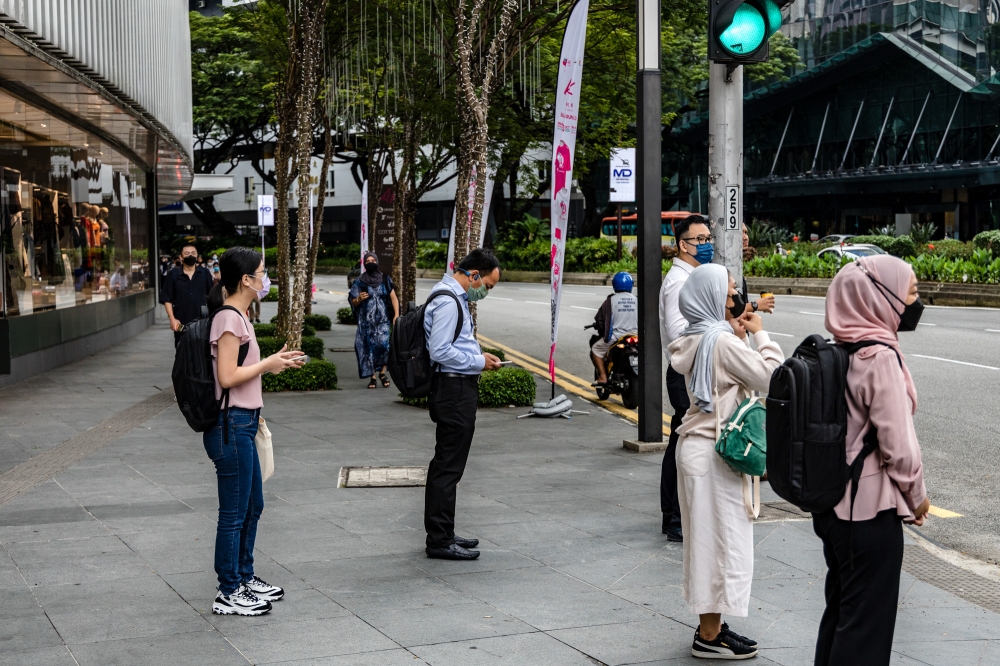KUALA LUMPUR, May 29 — Half of Malaysian millennials and almost half (45 per cent) of Malaysian Generation-Zs (Gen-Zs) rated the cost of living as their top concern, the Deloitte Global 2023 Gen Z and Millennial Survey found.
Other concerns for Malaysian Gen-Zs were crime or personal safety (23 per cent), economic growth (20 per cent), healthcare or disease prevention (19 per cent), and unemployment (18 per cent).
Meanwhile, Malaysian millennials were concerned about economic growth (27 per cent); food supplies, hunger or famine (19 per cent); cybersecurity or protection of personal data (19 per cent); and crime or personal safety (18 per cent).
The majority of Malaysian millennials (70 per cent) and Gen-Zs (65 per cent) also indicated a strong agreement that they live paycheck to paycheck, while worrying that they are unable to cover their expenses, the survey said.
This finding was much higher than global findings, which indicated that 51 per cent of global Gen-Zs and 52 per cent of global millennials agreed that they lived paycheck to paycheck.
“Despite their desires for better work-life balance and the ability to reduce working hours, many Gen-Zs (46 per cent) and millennials (37 per cent) have taken on a part-time or an additional full-time paying job to make ends meet.
“In Malaysia, this number is significantly higher, with 60 per cent of Gen-Zs and 62 per cent of millennials taking up a part-time or full-time paying job in addition to their primary job,” said the report accompanying survey findings.
The most commonly cited reason for the additional job was to have a secondary income stream (47 per cent for Malaysian Gen-Zs and 54 per cent for Malaysian millennials), followed by developing important skills and relationships (32 per cent for Malaysian Gen-Zs and 30 per cent for Malaysian millennials), the desire to develop it into their main job (27 per cent for both Malaysian Gen-Zs and Malaysian millennials), positive impacts on community and society (26 per cent for Malaysian Gen-Zs and 22 per cent for Malaysian millennials), and a desire for variety in work (25 per cent for Malaysian Gen-Zs and 24 per cent for Malaysian millennials).
In relation to this, satisfaction with work-life balance is also lower among Malaysian Gen-Zs (32 per cent) and millennials (21 per cent) compared to global findings (34 per cent for global Gen-Zs and 31 per cent for global millennials).

“Although nearly half of Gen-Zs and a majority of Millennials say their job is still central to their identities, they place a strong focus on work-life balance — the top trait they admire in their peers, and their top consideration when choosing an employer,” the report said.
The majority of Malaysian millennials (30 per cent) and Gen-Zs (28 per cent) preferred having full freedom to choose whether to work from home or on-site, while the former currently mostly worked in roles that require their presence on-site (33 per cent) and the latter at present mostly worked in fully remote roles (26 per cent).
Rough eight in 10 (84 per cent) for both demographics revealed that they would consider looking for a new job if asked to work on-site full-time.
“Many respondents now have hybrid or remote work models, a benefit they value deeply.
“They would like to see their employers offer better career advancement opportunities for part- time employees, increase part-time job opportunities, and provide options for more flexible hours for full-time employees such as a condensed four-day work week,” the report added.
The online survey had 303 Malaysian respondents, 201 of which were from Gen-Z while 102 were millennials. The gender of respondents was split equally between male and female.
In total, the survey received responses from 14,483 Gen-Zs and 8,373 millennials from 44 countries.






















